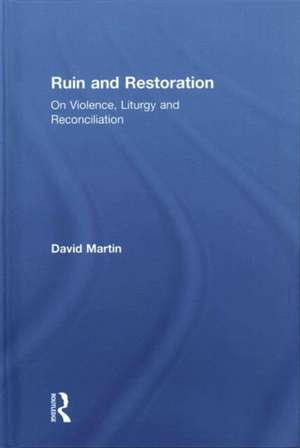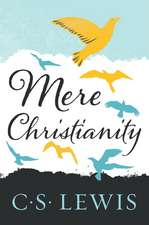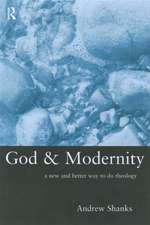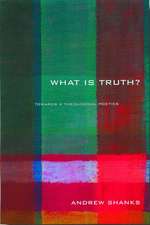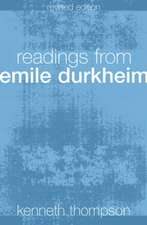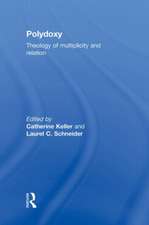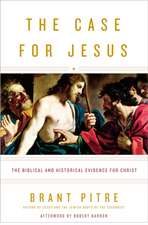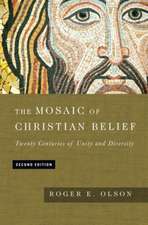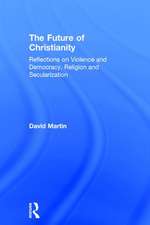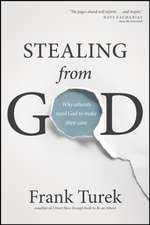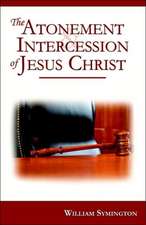Ruin and Restoration: On Violence, Liturgy and Reconciliation
Autor David Martinen Limba Engleză Hardback – 13 iul 2016
| Toate formatele și edițiile | Preț | Express |
|---|---|---|
| Paperback (1) | 408.88 lei 6-8 săpt. | |
| Taylor & Francis – iul 2016 | 408.88 lei 6-8 săpt. | |
| Hardback (1) | 1106.02 lei 6-8 săpt. | |
| Taylor & Francis – 13 iul 2016 | 1106.02 lei 6-8 săpt. |
Preț: 1106.02 lei
Preț vechi: 1348.80 lei
-18% Nou
Puncte Express: 1659
Preț estimativ în valută:
211.63€ • 221.56$ • 175.12£
211.63€ • 221.56$ • 175.12£
Carte tipărită la comandă
Livrare economică 05-19 aprilie
Preluare comenzi: 021 569.72.76
Specificații
ISBN-13: 9781472480644
ISBN-10: 1472480643
Pagini: 152
Dimensiuni: 156 x 234 x 13 mm
Greutate: 0.36 kg
Ediția:1
Editura: Taylor & Francis
Colecția Routledge
Locul publicării:Oxford, United Kingdom
ISBN-10: 1472480643
Pagini: 152
Dimensiuni: 156 x 234 x 13 mm
Greutate: 0.36 kg
Ediția:1
Editura: Taylor & Francis
Colecția Routledge
Locul publicării:Oxford, United Kingdom
Cuprins
Introduction; Foreword, Charles Taylor; Governing essay; First commentary: on sin and primal violence; on the language of atonement and the restoration of fellowship in the Resurrection; on time as the generator of meaning; on divinity revealed in the human face; Second commentary: speaking Christian, its vocabulary and grammar; Third commentary: on universal love over against the particular family and ethnic group; on sex and violence; Fourth commentary: on peace and violence; Fifth commentary: on the return of the liturgical in modernist music and poetry and the reconciliation achieved by liturgical poetry and music; Sixth commentary: on peaceable wisdom as mediating between radical eschatology and brute reality; Afterword; Index.
Notă biografică
David Martin is Emeritus Professor of Sociology, LSE, UK, and Fellow of the British Academy. He was born in Mortlake, in 1929 and attended East Sheen Grammar School and Westminster College, In the latter part of a seven-year period in primary school teaching he took a first class (external) degree in sociology in his spare time and won a post-graduate scholarship to the LSE. He became a lecturer in the LSE sociology department in 1962 and professor from 1971-89. After his first book on Pacifism (1965) he produced the first critique of secularisation theory (1965) and the first statement of a general theory of secularisation (1969 and 1978). From 1986-90 he was distinguished professor of Human Values at Southern Methodist University and turned to the study of global Pentecostalism, producing, the first summary statement of the world-wide Pentecostal phenomenon in 1990. He also returned to the issue of religion and violence and explored issues in music and nationalism and sociology and theology. His intellectual autobiography The Education of David Martin appeared in 2013.
Recenzii
‘This is, quite simply, a remarkable book. It is highly original and provocative, while maintaining an unflinchingly empirical gaze on the brute reality of the world.’ - The Revd Duncan Dormor, Church Times
Descriere
An exercise in socio-theology, David Martin reflects on the contrast between the world governed by the dynamic of violence as analysed by the social sciences, including international relations, and the emergence in Christianity (and Buddhism) of a non-violent alternative. A governing essay fuses frameworks drawn from Reinhold Niebuhr, Karl Jaspers, Ernst Troeltsch and Max Weber and explores the relation between the cultural sciences, especially sociology, and theology treated as another but very distinctive cultural science.
